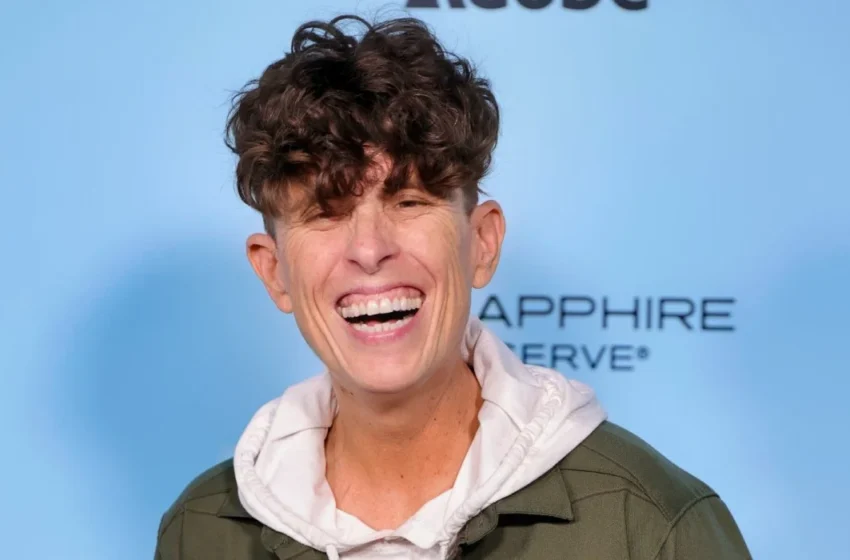Andrea Gibson: Celebrated poet and activist dies at 49 after battle with cancer

Andrea Gibson. Picture: Neilson Barnard/Getty Images
Andrea Gibson, a trailblazing spoken word poet known for their raw vulnerability, advocacy for LGBTQ+ rights, and fearless confrontation of illness and identity, has died at the age of 49. The acclaimed poet passed away after a prolonged battle with ovarian cancer, a journey they had chronicled with both candor and grace through their art.
Their death was confirmed on July 15, 2025, sparking an outpouring of grief and celebration across the literary and activist communities. Gibson’s words—tender, urgent, and profoundly human—left a deep imprint on modern poetry and queer culture.
Diagnosed But Undaunted: Gibson’s Battle With Cancer
Andrea Gibson was diagnosed with ovarian cancer in 2021. From the outset, they chose to face the illness with transparency, often speaking publicly about their experiences through performances, interviews, and social media. Their poetry became a refuge, not just for themselves, but for many who found solace in the unflinching honesty of their verse.
Despite the toll of the disease, Gibson remained creatively active until their passing. Their final works reflected both the agony of illness and the joy of existence, often reminding audiences that tenderness is a radical act in a world that demands resilience.
“Come See Me in the Good Light”: A Life Captured On Film
In 2024, Gibson’s journey became the subject of the documentary Come See Me in the Good Light, which followed their life and legacy as both a poet and a person facing mortality. The film received widespread acclaim for its intimate portrayal of Gibson’s emotional world and philosophical strength.
The documentary offered viewers a glimpse into how Gibson lived not in denial of death, but in deep conversation with it, an ethos that defined much of their work. They once said, “I want to die with my heart open,” a quote that continues to resonate with fans worldwide.
READ ALSO
Andrea Gibson: Poetic legacy in 9 revolutionary poems
John MacArthur is dead… here’s all to know about his legacy, controversies, others
Andrea Gibson Legacy of Love, Justice, and Art
Andrea Gibson first emerged in the early 2000s slam poetry scene and quickly became known for their lyrical style, emotional bravery, and relentless social commentary. Their work often touched on topics like gender identity, mental health, love, loss, and political injustice.
As one of the first openly nonbinary poets to gain national attention, Gibson helped shape conversations around gender and queerness in the arts. They authored several critically acclaimed collections including Pole Dancing to Gospel Hymns, Take Me With You, and Lord of the Butterflies.
Gibson also toured extensively across the U.S., filling theatres and college halls with performances that blended spoken word, storytelling, and activism.
Andrea Gibson Quotes That Touched the Soul
Andrea Gibson’s words continue to live on. Among their most cherished quotes:
“You have to understand, my heart was the first home I ever knew.”
“Don’t ever let anyone tell you who you are.”
“Your body is not a temple, it’s the forest.”
“Healing is not a two-week process. Healing is a daily decision.”
These lines, lifted from poems and interviews, reflect Gibson’s lifelong commitment to emotional honesty, self-acceptance, and radical empathy.
A Profound Loss for the Literary World
Tributes have poured in from poets, fans, and fellow activists across the world, remembering Gibson not only as a literary icon but as a friend, mentor, and beacon of light for marginalized voices. In a digital age flooded with content, Gibson’s work stood out for its depth and daring vulnerability.
Their death leaves a void in both the literary and LGBTQ+ communities, but their voice, etched in books, recordings, and memories, will continue to echo.
Andrea Gibson taught the world to love louder, grieve harder, and live more honestly. As we remember their legacy, we are reminded that poetry, at its best, doesn’t just describe the world, it changes it.
“Even the edge of grief is still a place where flowers grow.” — Andrea Gibson

